SPRING/SUMMER 2023

KEEPING WATCH
Cameras can create peace of mind—but come with risks





Cameras can create peace of mind—but come with risks



I once lost a heated argument with my 11th grade English teacher over whether I should have to write an essay on the subject of technology. I was a classic high school nerd with a passion for politics and big plans to attend law school and for a career that had nothing to do with technology. This was just before the dawn of the computer and internet age, and I had absolutely no interest in technology—whether it be vocational technology, automotive technology, or computer technology.
Clearly Miss Reideler was wasting my time. I was not taking that advanced English composition class because I wanted to research or learn anything about technology. When I was in high school, automotive technology instructors were still teaching about carburetors and computer technology was a college-level field of study involving mainframe computers. I simply could not understand why my favorite teacher was weighing me down with such a silly assignment when she must have known that technology had no relevance to me, my intended college major, or my career plans.
I cannot help but think that I’m getting a do-over on that assignment 40-some years later. The real irony is that while I ended up pursuing a career in law and public policy, I am immersed daily in the world of automotive and computer technology—and that the two fields have merged. While we did not set out to make this a technology edition of Iowa Auto Dealer, the magazine you are holding and the industry it covers is chock-full of tech-related stories.
The cover story, “Under Surveillance” (page 12), examines issues related to audio and video recording happening at automobile dealerships. Dealers need to carefully consider the business implications arising from security cameras, recording F&I transactions, and the fact that nearly everyone at the dealership has a professional grade video recorder with a high-speed internet connection in their pocket (in the form of a smartphone). When I was writing that term paper in high school it would have required shoulder-mounted VHS cameras and a satellite dish the size of a cement truck to do what has become technologically routine.
You will also find a fascinating and lengthy timeline of Iowa’s efforts to automate the motor vehicle titling and registration process (page 16), culminating in this spring’s launch of used vehicle electronic registration and titling functionality. Iowa’s automobile dealers have been advocating since at least the 1990s for technology to more efficiently move the data and money required to title and register motor vehicles and, more importantly, to timely perfect and release liens on them. A description of the benefits of the technology, the story of its implementation, and a peek at what’s next are all in the pages ahead.

I hope you enjoy this edition of your association’s magazine. We produce it to celebrate and serve Iowa’s automobile dealers and the high-tech industry you drive.
Bruce Anderson IADA President
1111 Office Park Road
West Des Moines, Iowa 50265
Phone: 800.869.1900
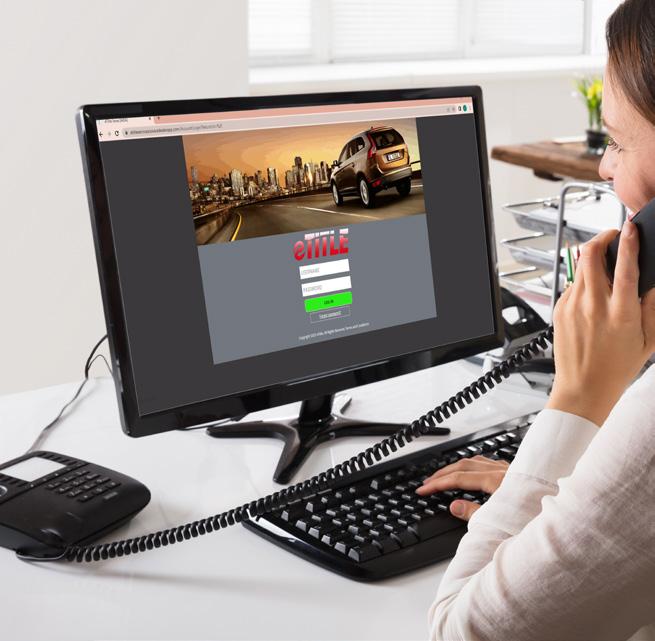
CHAIRMAN Dave Wright
VICE CHAIRMAN Josh VanNess
PRESIDENT Bruce Anderson
SECRETARY Jason Willis
TREASURER Jim O’Halloran
IMMEDIATE PAST CHAIRMAN Jon McCoy
DIRECTOR AT LARGE Tim Godfrey
DIRECTOR AT LARGE Danny Wilson
HEAVY DUTY TRUCK DIRECTOR Fred Grask
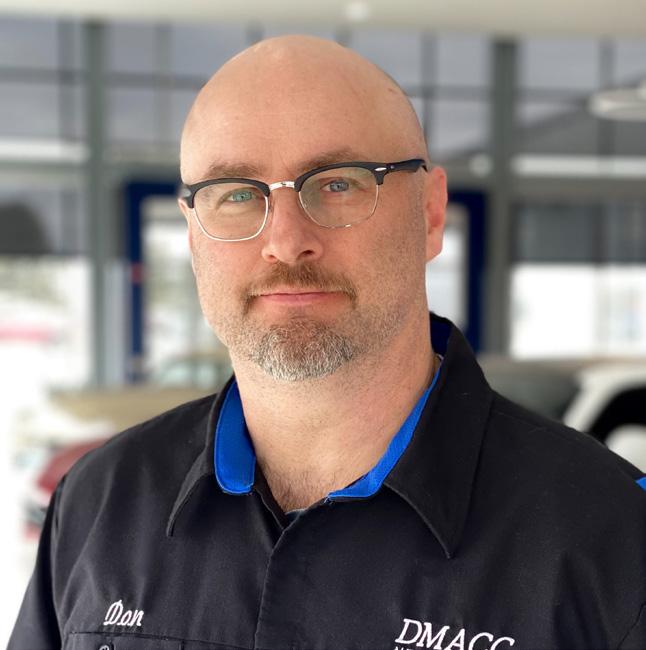
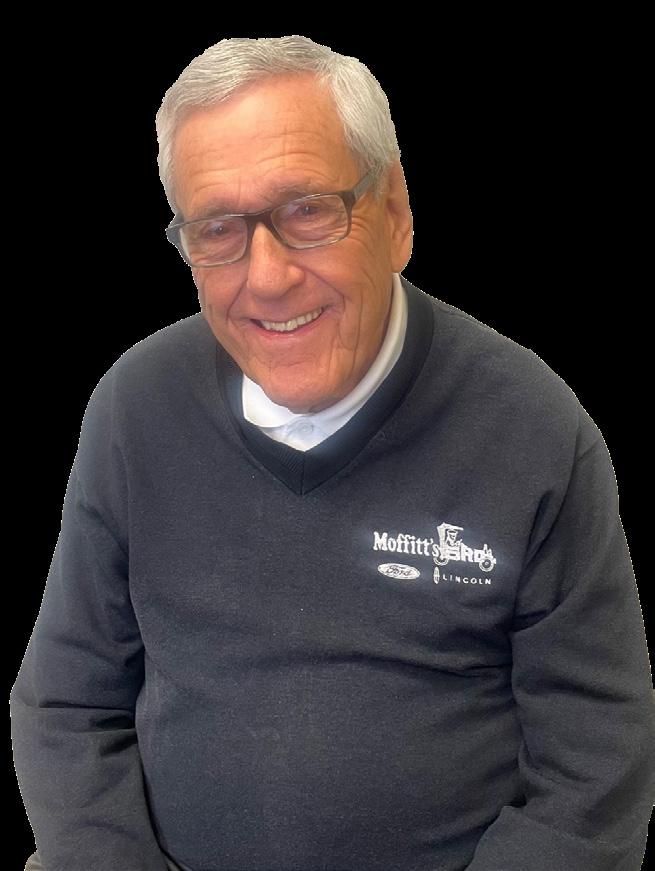
INDEPENDENT DIRECTOR Joe Clemons
DISTRICT ONE DIRECTOR Doug DeYarman
DISTRICT TWO DIRECTOR Lindsay McGrath
DISTRICT FOUR DIRECTOR Carey Kemna
NADA DIRECTOR Jeff Weber
EDITOR Brittany Bungert
EDITORIAL INTERN Lindsey Herazy
Iowa Auto Dealer (ISSN 2472-2634) is a bi-annual magazine produced for members of the Iowa Automobile Dealers Association.
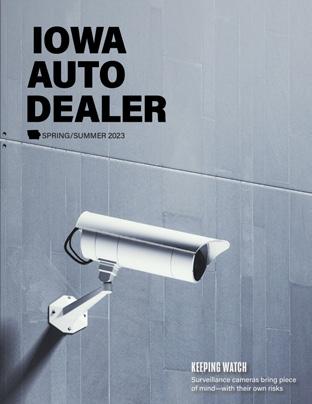
© 2023 Iowa Automobile Dealers Association


Our panel of experts weighs in on new technology and strategies.

Technology today shares so many possibilities for accumulating information; the challenge is how we combine all this data with our knowledge to gain insights meaningful to our sustainable success.
— MICHAEL HAYES Academy Director National Automobile Dealers AssociationSometimes innovation is all about new and more efficient ways to get access to data that has been available all along. Take for instance the OBD-ll port in all vehicles since the late ’90s. This has been traditionally used by technicians in dealer service departments using scan tools to diagnose engine and transmission functionality, emission control systems, and the occasional engine light illuminated on the dash. As vehicles have become more sophisticated the information available has expanded to include performance, fuel consumption, location services, and maintenance reminders. And as technology advances, consumers have multiple inexpensive (under $100) options to have instant Bluetooth access to this information, both for decoding warning alerts and improving their driving habits. Here’s looking at you, teen drivers!
While some dealers use these capabilities in the service department, facilitating a faster, informative, and more efficient walk-around process with the customer, there are many other opportunities throughout the dealership, specifically pre-owned vehicles.
Pre-owned vehicles have taken on even greater importance with the generally short supply of new inventory as well as the lack of affordability for entry level new models. As vehicles get ever more expensive with the average selling price at franchised dealers exceeding $30,000, dealership inventory acquisition costs are climbing. Vehicles on the road today are also much more technologically advanced. What are best practices to arm buyers with valuable information in determining the proper investment? How about listening to the vehicle. The OBD-II port is a window into the operation of so many important systems for efficient and safe operations. Coupled with a complete vehicle inspection, this delivers a quick and efficient process for accurate reconditioning costs and proper vehicle valuation. And it has never been more accessible!
I’ll guess that when you think of an “innovation” you think of a technology, like a smartphone. I am going to go in a different direction and propose a strategy as a recent innovation. And that strategy is to beat the independent aftermarket (IA) at its own game, which is convenience. Fifty years ago dealers had half of the service market, and now they’re down to under a third. And this happened not because the IA people had better techs or tools, but because they offered customers more convenience. We’ll change your oil while you sit in your car. We’ll come to your house and replace your windshield in your own driveway. We’ll locate our shops everywhere, not just in the Auto Mile. (The IA has about ten times as many locations as do car dealers.) But during the pandemic more dealers were forced to offer more convenience, such as service pickup and dropoff—and customers loved it. Well, the pandemic is mostly past, but new storms are brewing, including a (slow) retreat in store profitability, and a (slow)
rise of EVs, with their 40% lower demand for service. One way to fight those storms is to generate more service work—and in my view that means offering more convenience. (To be honest, this is not so much “new,” as “newly rediscovered.”) I’d therefore embrace the strategy of Making Service Ever More Convenient.

I realize that for a store in rural parts of Iowa, with its great distances, service pickup and dropoff may be completely infeasible. But there are other ways to crack the code: Rush Enterprises, for example, the largest heavy-duty truck dealership chain in America, has over 500 mobile service trucks.

In every aspect of the dealership, there is some new technology to help them do their jobs more efficiently, but you have to be willing and open-minded about the change that is coming. Sometimes we don't see the benefits because setting up or changing the current process takes a lot of work. I don't know how often I hear, "Oh, this is going to take forever to get everyone on board," or something similar. Then in a few months, they were rolling with it like it was the way they had been doing it all along.
dealerships to obtain titles from lien holders participating in the program.

The Electronic Registration and Title (ERT) program allows the dealership to send title work and money to the counties to process electronically. This cuts down the mail and processing time for the counties and dealers— which in turn is better for customer service. (Learn more about ERT in “Worth the Wait” on page 16.)
— JESSI WHITE Director of Dealer Services Iowa Automobile Dealers Association

Take ELT and ERT technology, for example. These two processes help dealerships sell cars faster. Having the Electronic Lien and Title (ELT) system allows a lien holder to receive fast, electronic confirmation that the lien has been recorded. No paper title is being mailed that could be lost. Once the customer satisfies their lien obligations, they will receive a paper title faster as the lien holder will notify the Iowa county electronically to release the lien and print and mail a title at that point. This moves much faster for
Another technology example is digital deal jackets. This stops wasting valuable square footage in the dealership on storage but keeps customers' records at your fingertips. It also allows you to be more compliant with record retention requirements. You might have had an employee that always filed, and now they scan. It's just shifting the mindset.
Technology and change can be scary. How do you entice employees to be open-minded to these changing processes? Look for how it can make them effective and more efficient. We are all doing a lot each day. When we find something that simplifies or makes it easier to do the job, it helps people come around. Just because we’ve always done it that way doesn’t mean it’s the best way.
• Connect with all 99 county treasurers on a single platform.
• Speed up the titling and registration process while reducing errors.

• Eliminate shipping fees, making copies, and lost paperwork.
• Skip long lines at the county treasurer’s office.
• Track the status of submitted paperwork in real time.
call 515.440.7611 or email jwhite@iada.com
Stan Moffitt loves the auto business.
Over the course of his 73-year career, he grew up serving and selling in the industry he still enjoys today. Stan’s father, Herb Moffitt opened Moffitt’s Ford Lincoln in Boone County in 1928. When Stan was 16 years old, he started undercoating cars. A year later he was promoted to the oil change rack and at 18—after high school graduation and the shop foreman walking off the job—Stan took over the shop.
At 89 years old, Stan has been involved in the Boone community and the auto industry for most of his life. IADA has been a big part of Stan's involvement in the industry, and he has served the association in many roles. In 1994, he was Iowa’s TIME Dealer of the Year nominee. He served more than 10 years on the IADA Board of Directors and was the IADA Chairman in 2000. He served as IADA PAC chairman for 16 years. Many dealers received a call from Stan during PAC phone banks, with a gentle nudge to encourage dealers to contribute and be part of the political process. Whether or not the caller contributed, Stan always enjoyed connecting with dealers across the state.
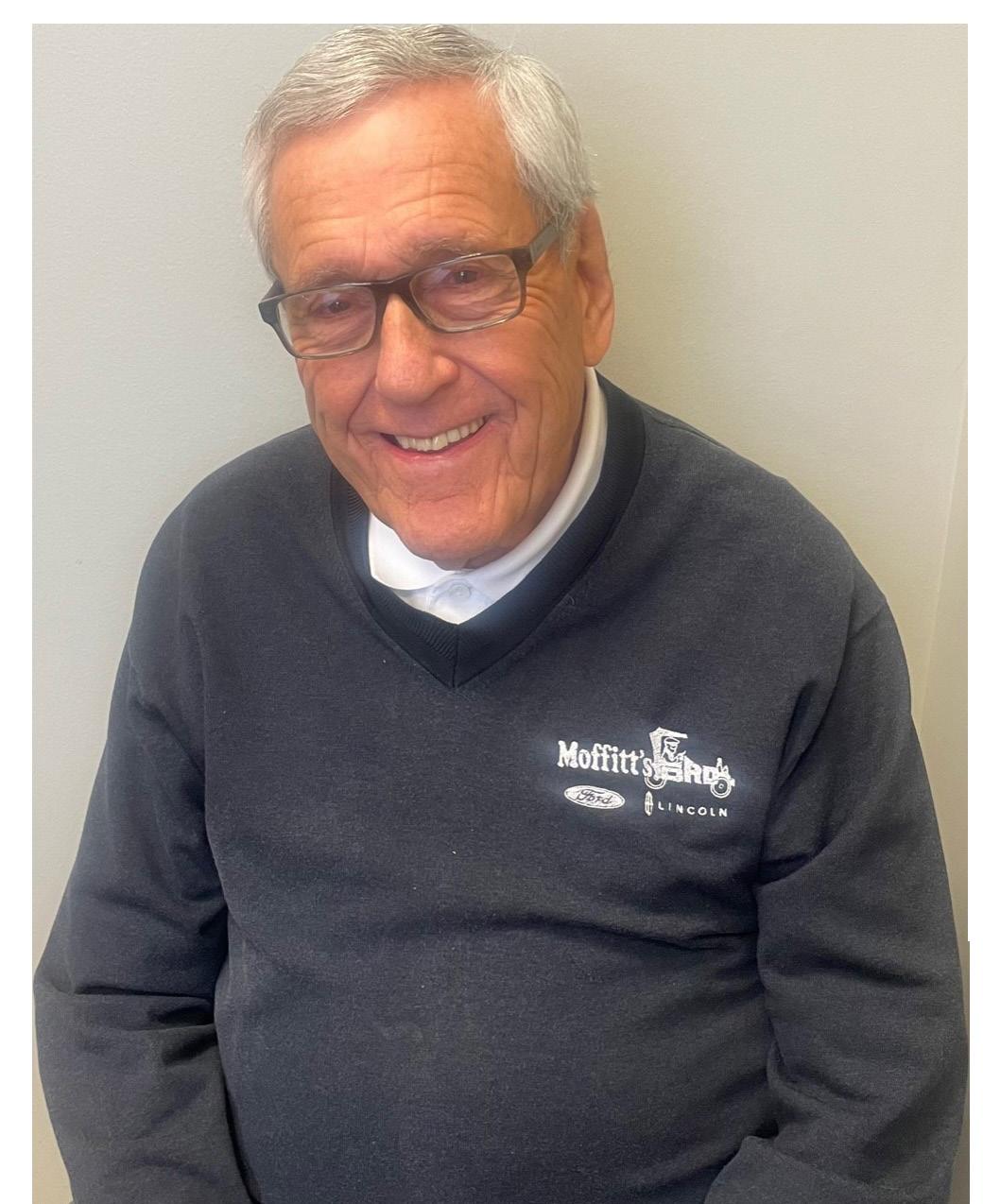
Stan currently serves on the Iowa Automobile Dealers Foundation for Education Board of Directors, a role he has held for more than 20 years. He was one of the 25 original Founders Club members who contributed $10,000 to establish the Foundation. Stan and Marleen, his wife of almost 65 years, established the Stan and Marleen Moffitt Scholarship to help support students pursuing automotive education.
Stan’s first IADA memory was when Al Kahl was IADA president and Stan was a teenager. The new Ford executive visited Herb Moffitt and informed him that Ford wanted the franchise back. Herb refused and called Al Kahl. Kahl stepped in and with the support of IADA the franchise remained with the Moffitts.
In honor of his dedication to the industry and the association, Stan has been selected as the tenth inductee into the IADA Hall of Fame. The award recognizes, honors, and celebrates the lifetime achievements of dealers and association leaders whose career has been dedicated to excellence in Iowa’s automobile industry.
“Being inducted in the IADA Hall of Fame is one of my biggest honors,” Stan said. “I also enjoyed being the IADA chairman and the years of being the PAC chairman as well.”
As Stan reflects on his time in the auto industry and his involvement with IADA, he has many fond memories and has enjoyed the relationships he made that have lasted a lifetime. “I have met some of my best friends at IADA events,” he said.
After decades in the business, Stan’s advice to younger dealers is to get involved with their state association. “You need IADA and to be active to be better informed. There is so much information to keep up with and to know what is required. IADA is there to help you and fight for your dealership on the state and national level.”
OCTOBER 10
Sioux City
OCTOBER 13
OCTOBER 12
Cedar Rapids
OCTOBER 16
West Des Moines Registration
Dubuque
75%+ of targeted cyberattacks start with an email
15%
of dealers experienced a cybersecurity incident in the past year according to a 2022 CDK study

$1.85 million
average cost of rectifying a ransomware attack, according to a 2021 Sophos study
$408,644
average ransom payment in the fourth quarter of 2022, according to Coveware
Let’s talk. My name is Sheila Davi idson and I can help increase sales and impact back-office efficiencies. Let’s schedule a time for you to see how Dealer Pay is the leading payment solution for card/ACH processing, POS software/hardware, hosted/ contactless transactions and more!
Talk with your IT team to make sure you have a proactive strategy in place for cybersecurity.
AssuredPartners, an IADA preferred provider, can help dealerships obtain cyber insurance. For more information, contact Brian Hughes at brian.hughes@ assuredpartners.com


Level 0
Momentary Driver Assistance

The driver is in full control of the vehicle, but vehicle systems can provide momentary assistance through alerts or emergency safety interventions.

Level 3
Conditional Driving Automation


The driver remains available to take over, but the system handles all aspects of driving.
Level 1

Driver Assistance
The driver is fully responsible for driving, while assistance is provided with either acceleration and braking or steering.
Level 4
High Driving Automation
The system is fully responsible for driving within limited areas.
Level 2
Additional Driver Assistance
The driver is fully responsible for driving, while assistance is provided with acceleration and braking and steering.

Level 5
Full Driving Automation
The vehicle can drive anywhere in all conditions without a person doing anything but setting a destination.
S.W.A.T. is an industry-first tool that provides valuable pricing insights based on your customer pay data.

Uncover in real-time what is going well in your pricing and discounting policies…and what could use some help. From local competition to employee dynamics, we recognize each dealership comes with an exclusive set of needs. S.W.A.T. analysis with an Armatus Warranty Specialist generates unique “what-if” scenarios from your store’s specific data to project practical and obtainable results.
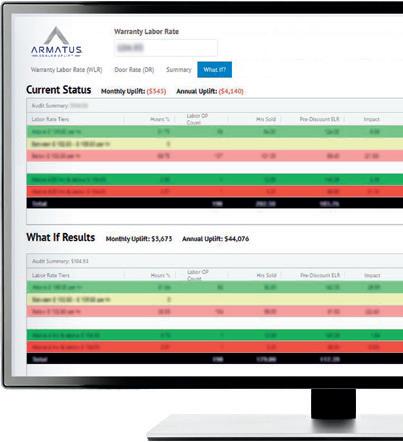
Full driving automation is still a long way off, but vehicles available today are equipped with up to Level 2 automation.
Audio and video recordings are becoming more accessible and more sophisticated. Dealers need to know the law—and best practice guidance—when determining their own surveillance strategy.
BY LINDSEY HERAZYIn F&I offices, service bays, and the sales lot, cameras can be an important part of a dealership’s security and training strategy, but using them isn’t risk free. And now that nearly every customer has a camera-equipped mobile phone in their pocket, the tables have turned and dealerships are one unfortunate video away from internet infamy.
Iowa and federal law governs when and whether people can be recorded, as well as what happens with those recordings after they are obtained. Every dealership using recording devices on their property needs to be aware of the law and of best practices in order to protect their business.
Iowa is a one-party consent state, which means that one yes is all you need in order to record audio.
“Basically, audio conversations can only be recorded if the person recording is participating in the

conversation or if one party to the conversation consents,” said Ben Roach, an attorney with Nyemaster Goode PC.
That gives Iowa dealerships a lot of flexibility in when and where they record customers.
“That should mean that dealerships who wish to record customer interactions such as test drives, F&I or service interactions, phone calls, etc., should generally be permitted to do so under state law without obtaining the consent of the consumer,” said Brad Miller, chief regulatory counsel for digital affairs at NADA, who noted that
some states may have additional disclosure or other requirements beyond consent that dealers need to consider. “In any event, dealers who record their customers may wish to consider notifying consumers that such recording is taking place. That could be through signage, recorded language on a phone call, or otherwise (note that phone calls raise additional issues as it is not always easy to determine what state the call recipient is in).”
Two different types of people in your dealership need to be notified about potentially being recorded: customers and employees.
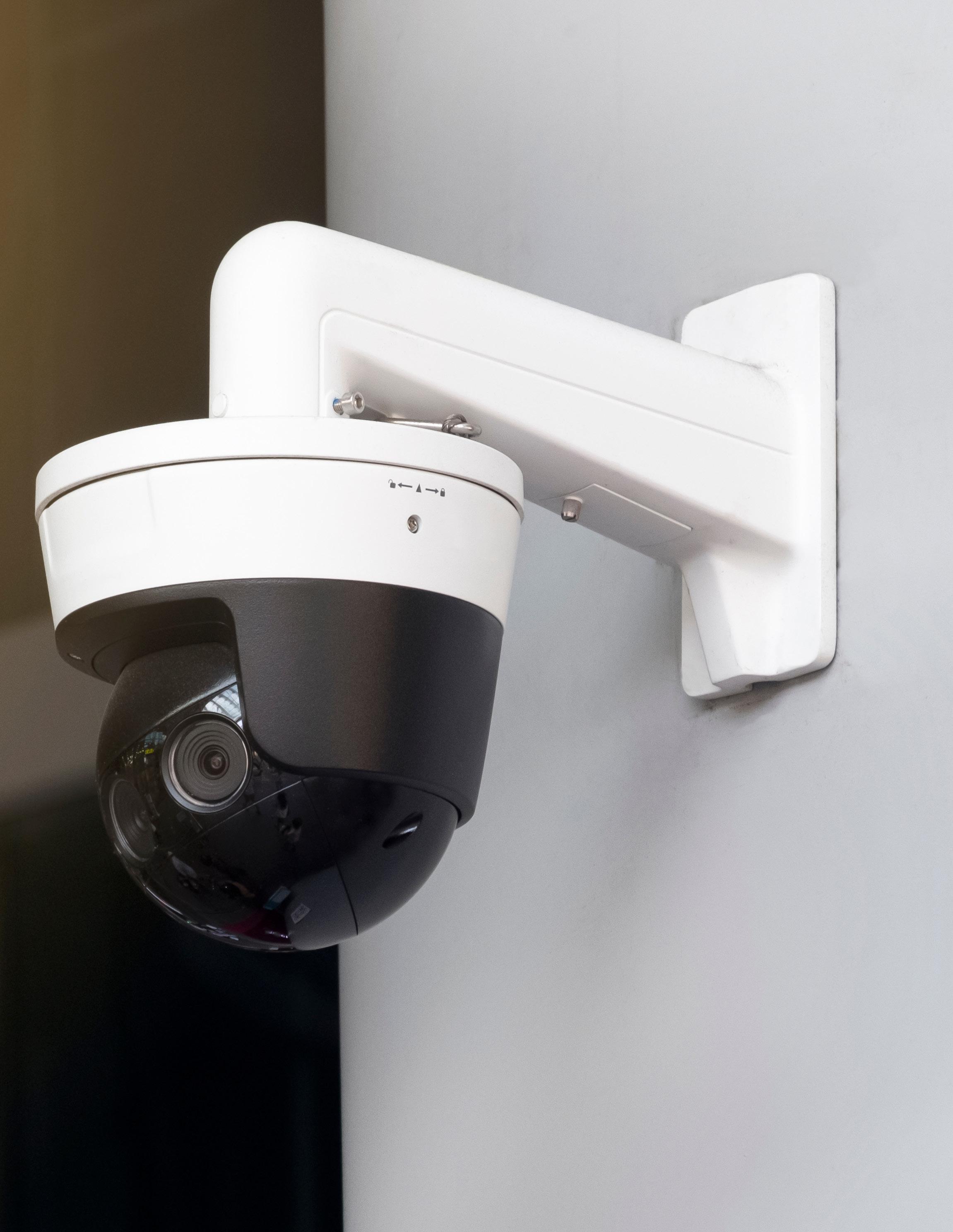
“If you are going to record interactions, give notice and obtain consent. For employees, this does not have to be every time, but should happen periodically. Customer consent should be obtained every time an interaction is recorded,” said Roach. “While not always legally required if the employee consents and is participating in the conversation, a judge or jury still may not look kindly on surreptitious recording by a business.”
Iowa law prohibits intercepting oral communications, but there is an exception that allows property owners or lessees to use surveillance systems with audio recording capabilities.

“Security cameras on the exterior
or in common areas of commercial buildings are an example that fit this exception,” Roach said.
As dealers know all too well, a lot of private customer information is involved in the purchase of a motor vehicle. When audio recordings are made in the F&I office in particular, that customer data is captured.
“The contents of any recording should be protected from hacking or inadvertent disclosure and kept no longer than needed,” Miller said. “If the recording contains ‘non-public personal information’ or ‘customer information’ as defined under the federal Gramm-Leach-Bliley Act, then
dealers must safeguard the contents of those recordings under the FTC Safeguards Rule (as must any vendor or technology provider that stores or makes such recordings) and must also make appropriate disclosures to the customers under the FTC Privacy Rule.” (See sidebar, page 15, for more information on customer information.)
There is no Iowa law that dictates how long dealers can retain customer data. However, the longer recordings that include customer data are held onto, especially if the recordings are not encrypted, the higher the chance of a data breach.
“If such a breach of security occurs, the dealership would have obligations to notify impacted consumers and possibly the attorney general,” Roach said. “If impacted customers live in other states there could be additional notice or identity theft protections required.”
Perhaps the most concerning scenario, however, is largely out of the dealership’s control. Customers are constantly accompanied by audio and video recording capabilities on
“While not always legally required if the employee consents and is participating in the conversation, a judge or jury still may not look kindly on surreptitious recording by a business.”
—BEN ROACH
their smartphones and, even when the customer isn’t present, some vehicles come into the service bay with dash cams ready to record the experience. Under Iowa law, customers cannot record audio if they are not physically present, but there is no prohibition on recording a video without sound.
“It could be in the service department on a dash cam or other recording device in the vehicle or on their phone, etc.,” Miller said. “Even if you are not in a dual consent state, dealers who wish to prohibit such practices should be able to require as a matter of company policy that all dash cams and other recording devices be disabled while at the dealership.”
Miller suggested conspicuous signage or a customer signature on a repair order to communicate that prohibition.
“Of course, that needs to be handled properly or it could seem like the dealer is trying to hide something,” he said. “It is primarily an issue of protecting the privacy of dealership personnel—especially when they do not know they are being recorded.”
Adam Crowell, president and general counsel of ComplyNet emphasized that while dealerships can have a no-recording policy in place it needs to be enforced consistently.
“Postings and requests can be made for customers not to record, and customers can be asked to leave and not return for violations if that is in fact the policy and the policy is uniformly applied to everyone,” said Crowell. “But, practically speaking,
nothing will stop a customer from secretly recording communications with employees, and little can be done after the fact to stop a recording from being distributed.”
Dealership employees need to be aware that there is always the chance their actions are being recorded.
“Assume that every customer is recording every interaction and conduct yourself accordingly,” said Roach.
Implementing an audio and video recording strategy in your dealership may seem like a simple way to protect your business. But it’s more complicated than that.
“There may be benefits to dealers to recording consumers, such as avoiding confusion, or protection against consumer claims, but dealers should weigh those benefits against any consumer concern about being recorded or other downside,” Miller said.
And this isn’t a trend that’s likely to disappear in a year or two.
“Furthermore, these issues are only likely to become more prevalent as more and more vehicles contain video and audio recording capabilities as standard features from the factory,” Miller said. “So dealers who have not yet considered these issues may be forced to do so in the coming years.”
Whether or not dealers decide to record customers, there are some best practices to keep in mind.
Miller and others suggest that
dealers should work with their attorneys and other experts before recording customers or employees, or prohibiting recordings.
“Have discussions with knowledgeable experts that can both help guide you through the process and assess your current policies, procedures, postings, and trainings, and help you conduct periodic assessments and trainings to help you manage your risks,” Crowell said.
When a recording strategy is implemented, it becomes even more important for employees to stay on their best behavior.
“Recording is not always helpful to the dealership or the customer, it depends on what actually gets said, and how much context is captured on the recording,” Roach said. “Because Iowa is a one-party consent state, employees should act at all times as if they are being recorded.
“There is no guarantee that anything is ‘off the record’ or ‘just between you and me.’ Anything an employee says to a customer could be used against them and the dealership.”
In terms of Iowa law, “personal information” means unencrypted data that includes a person’s first name or initial and last name in combination with any one other data element, such as:
• Social Security number
• Driver’s license number
• Birth date
• Bank account number
• Credit card number
For the FTC Safeguards Rule, personal information includes nearly any information dealerships collect from or about a customer. In order to best protect yourself, consider all customer information subject to the Safeguards Rule.
“Furthermore, these issues are only likely to become more prevalent as more and more vehicles contain video and audio recording capabilities as standard features from the factory.”
—BRAD MILLER
In the works for decades, a statewide electronic registration and titling system is finally in place.
Over my dead body.
Can’t it wait until after I retire?
The initial opposition to creating an electronic system for titling and registering (frequently called ERT) motor vehicles was as fierce as the support for the concept. But more than two decades after the legislature initially directed the Department of Transportation to study the feasibility of ERT, a statewide system for both new and used vehicles is finally available.
“It’s been a long process,” said Jessi White, IADA Director of Dealer Services, who has worked tirelessly on ERT since 2018. “But I’m so glad that dealers can finally realize the benefits of using the ERT system for all of their deals.”
And the benefits of ERT are many. (See the sidebar on page 18.) The implementation—and the long process to get to this point—forced dealerships, counties, and the DOT to examine titling and registration processes from top to bottom, creating consistent practices that work for all the stakeholders.
Getting to this point was anything but easy.
In the Beginning
“Inconsistencies in how county treasurers handled titling and registration transactions and widely varied processing times from county to county are what drove dealers to demand that IADA do something to ensure that dealers could perfect security interests in a timely manner,” said IADA President Bruce Anderson.
Despite early enthusiasm from the legislature, with laws enacted in 1997 and 2004 giving the DOT permission to pursue ERT, and in 2000 to permit electronic signatures, little progress was made in the early years.
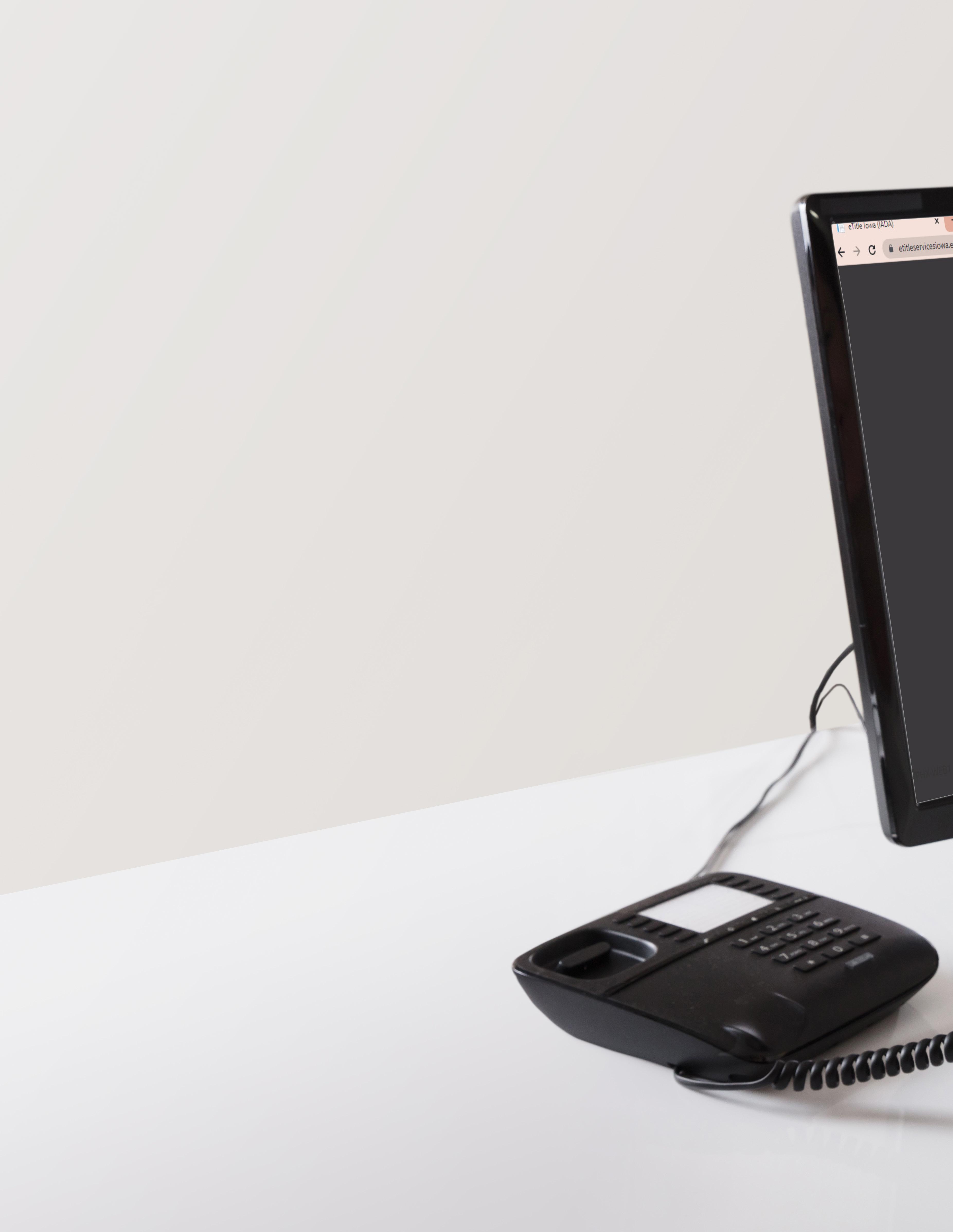
Then in the summer of 2010, the DOT, at the direction of the legislature, created a working group to study how to implement a uniform statewide ERT system.
The group met eight times between June and

1. Submit the paperwork to counties faster and more efficiently.
2. The lien is perfected once the title clerk submits the paperwork to the county.
3. Counties often process ERT transactions faster than paper.
4. Customers get the plates and registration papers mailed to them directly.
5. ERT allows for the paperwork to remain at the dealership, so transactions don’t get lost in the mail.
6. Money collected for the fee for new registration, title, and license are sent via ACH, not by check, to the county.
7. Money is not taken from ACH until the county processes the deal. This means dealerships aren’t writing checks, voiding checks, and then resending when the fees are incorrect, saving time, money, check expenses, and postage.
8. Deals with errors are quickly returned for correction electronically, instead of going through the mail, which can take weeks.
October, discussing every angle from security concerns to a cost/benefit analysis.
The groups conclusion: Implement electronic lien and titling (ELT) by July 21, 2011, electronic fund transfers (EFT) by October 14, 2011, and ERT by October 25, 2012.
ELT was an important first step toward developing ERT, solving a significant problem dealerships were facing.
“In addition to the risk of having chargebacks/recourse because of failure to timely perfect a lien, there were real problems with lenders locating titles and returning them on trade vehicles,” said Anderson. “When the entire process was paper, it was standard procedure for funding sources to hold/warehouse the physical paper title with the lien noted in their central offices, which were usually located out of state. When a lien needed to be released, it involved tracking down a physical piece of paper in a warehouse, noting the release in ink, and forwarding that to the dealer for processing at the county treasurer. Lenders often lost those paper titles, requiring dealers to start the whole release process over again. It was a frustrating and slow process.”
Following the working group’s recommendation, ELT was the first priority for development, with the ELT program entering beta testing in 2013. The final phase outlined by the DOT’s working group, implementation of ERT, was never reached. Again the project floundered. In the meantime, dealers were still faced with the challenges of the paper process.
In 2016, the legislature enacted a law establishing a firm deadline for the Department of Transportation to implement a statewide ERT system, with penalties for missing the mark.
January 1, 2018 was the deadline established by the 2016 legislation. While that deadline was missed, it
served as a catalyst for getting the project moving.
eDealer Services joined the partnership group working on developing the ERT system, providing technical expertise as the data aggregator. IADA’s Jessi White became the association’s point person on ERT. And regular meetings among the stakeholders began taking place.
In January 2018, the new vehicle pilot finally launched, a two-year testing program that concluded in July 2020. Used vehicle development began shortly after, with a pilot program launching in early 2023.
With the full launch of ERT, dealers and counties are finally able to fully and efficiently process titling and registration paperwork electronically.
“What we have learned on this long journey is that automation of titling, registration, and lien perfection is an ongoing process and not a final result. ERT provides so many immediate opportunities for improved efficiencies but there will always be ways to enhance and improve the new system and we need to be diligent about doing just that,” said Anderson. “A fantastic and unintended result of pursuing the implementation of ERT was the creation of Jessi White’s position as director of dealer services. That has enabled IADA to really get to know and better serve Iowa’s title clerks, who are the unsung heroes of automotive retailing.”
Although ERT is live, the system isn’t stagnant. Work continues to enhance the experience for dealers and customers. But for the more than half of all franchised dealers in Iowa who are using ERT, it is a significant improvement.
Dealerships that want to learn more about ERT should contact Jessi White. She can be reached at jwhite@iada.com or 515.440.7611.
1997
The Iowa legislature passes a law that authorizes the Department of Transportation (DOT) to implement a program to test the feasibility of an electronic titling and registration system.
2000
The Iowa legislature passes a law requiring the DOT to adopt rules for electronic signatures.
2004
The Iowa legislature amends the law to change “test the feasibility” of electronic registration and titling to “allow for” electronic registration and titling.
2010
The Iowa legislature enacts a law stating the intent of the legislature was that the DOT have an electronic registration and titling system in place by January 1, 2012.
The DOT working group meets eight times between June and October to study implementing an electronic registration and titling process. That group creates a 142-page report with a recommendation to implement electronic lien and titling, electronic fund transfers, and finally, electronic registration and titling.
2012
The original target date for implementing ERT, set by the legislature, passes with no progress.
2016
Legislation establishing January 1, 2018 as the deadline for the Iowa DOT to implement electronic registration and titling is enacted.
2018
The beta test for new vehicle ERT begins.
2022
New vehicle electronic registration and titling opens to all franchised Iowa dealers.
2023
Beta testing for used vehicles takes place.
Full ERT system launches for all Iowa dealers.
Iowa’s four members of the House of Representatives share what they want dealers to know.
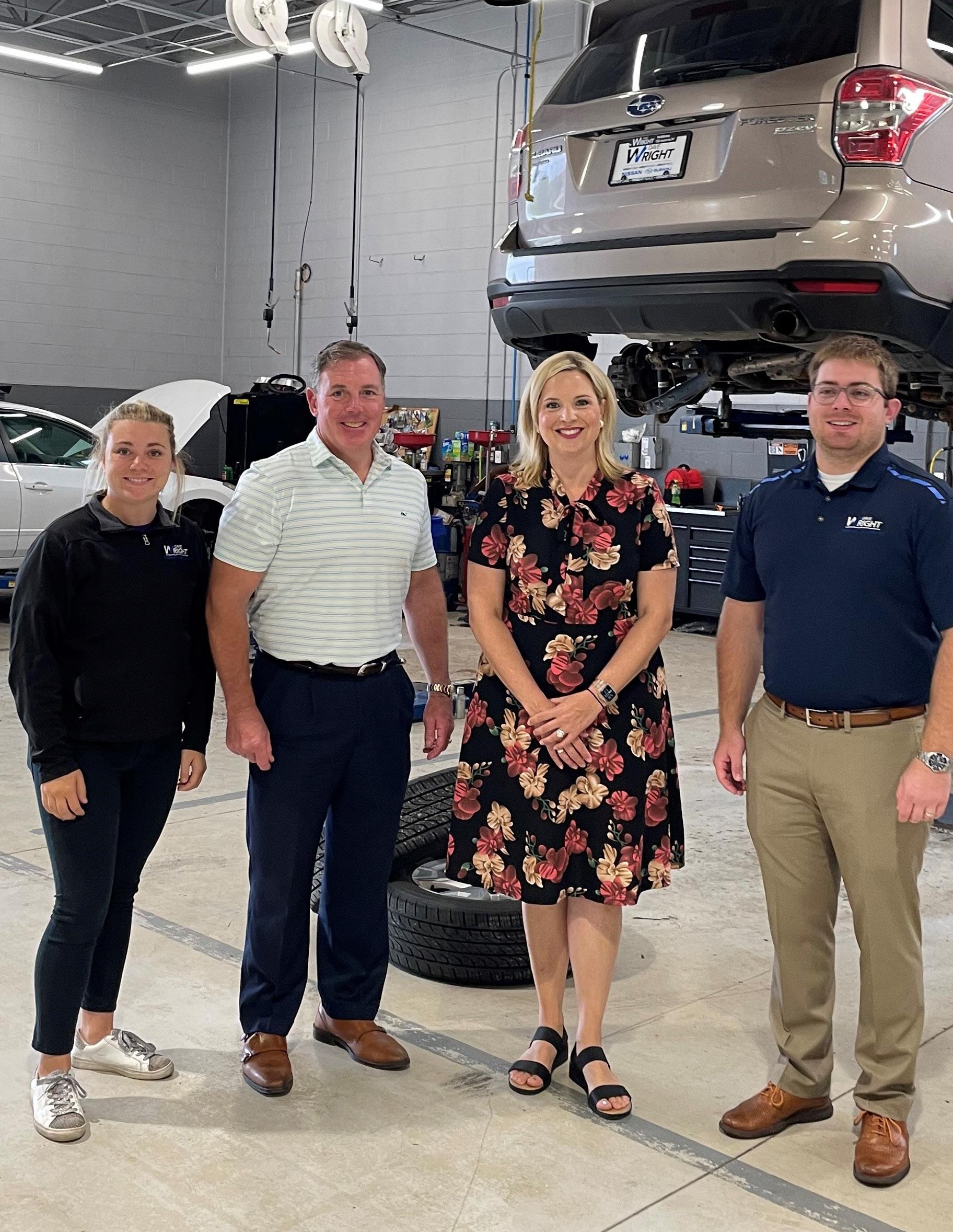
1
Supporting Iowa’s small businesses is key. Small businesses are the backbone of Iowa’s economy. In Congress, I’ll continue to advocate for small businesses by pushing back against burdensome regulations like the FTC’s proposed Vehicle Transaction Rule that overcomplicates purchasing a vehicle. I joined my colleagues in sending a letter to the FTC asking them to withdraw their proposed rule because the government does not need to be over involved in Iowans’ transactions —large or small. I will continue to push back on government overreach that hurts all of us.
2
Restoring fiscal responsibility is a priority Inflation and our economy are top of mind for everyone. We must restore fiscal responsibility in Washington because our government spending is out-of-control and every industry, including the auto industry, is impacted. Last Congress, I backed legislation to make the 2017 tax cuts permanent for working families and small business. Commonsense economic policies will help bring our economy back for everyone.
3
Unleashing American energy is a win for Iowans. We have the solution to lower fuel prices and reduce our dependence on foreign adversaries for energy right here in Iowa—our domestic energy industry. With biofuels front and center, we can maximize our domestic energy production to lower prices, prevent shortages, and restore our energy independence.
4
Iowa community colleges are building our workforce. We have exceptional educational programs across the state that equip students with the necessary skills to start a well-paying career in the field of their choosing, including diesel mechanics. Four-year degrees aren’t for everyone, and Iowa has a great story to tell when it comes to STEM and skills-based education. I’ll continue working to expand access to these learning opportunities that open so many doors for students to have successful careers in our local businesses and industries. Building our workforce will bring opportunities to Iowa for generations to come.
5
Hearing from you is important. I can’t do my job unless I hear from you. Whether it’s a meeting with a local dealership or hearing from you at one of my in-person town halls, your feedback helps me advocate for legislation that will solve the challenges you’re facing and help Iowa’s auto dealerships thrive. Additionally, if you’re ever experiencing an issue with a federal agency, our team is dedicated to helping you cut through the red tape and get the answers you need. Our doors are always open!
Representative Ashley Hinson (center right) tours Dave Wright Nissan Subaru in Hiawatha with Sydney Wright (left), Dave Wright (center left), and Tyler Wright (right).Brokering free- and fair-trade agreements:
In 2020, the United States imported more than $144 billion in cars, cementing our status as the largest importer of light vehicles in the world. Due to record growth, one in five jobs in Iowa rely on fair trade worldwide. As a new member of the House Ways and Means Committee, I will work to ensure that our local manufacturers and dealerships can import the inventory and parts they need to operate successful businesses. This includes enforcing the laws on the books in the United States-Mexico-Canada Agreement, which was signed into law in 2018, and holding foreign countries accountable for violating our trade laws. Last Congress, I also cosponsored and voted for the Ocean Shipping Reform Act to prevent foreign nations like China from abusing our trade
policies, strengthen American competitiveness in the international vehicle market, and protect our domestic manufacturers from unfair and discriminatory shipping practices that often leave American-made goods on the docks instead of loaded on freighters. Additionally, while tariffs can punish bad behavior and promote our international interests, we must also be cognizant of the impact they can have on consumers, families, and small auto dealers who “eat” the cost of these fees. Over the course of the 118th Congress, I will continue to be a strong voice for Iowa’s small businesses and the importance of free- and fair-trade deals to the economic vitality of our communities and our state.
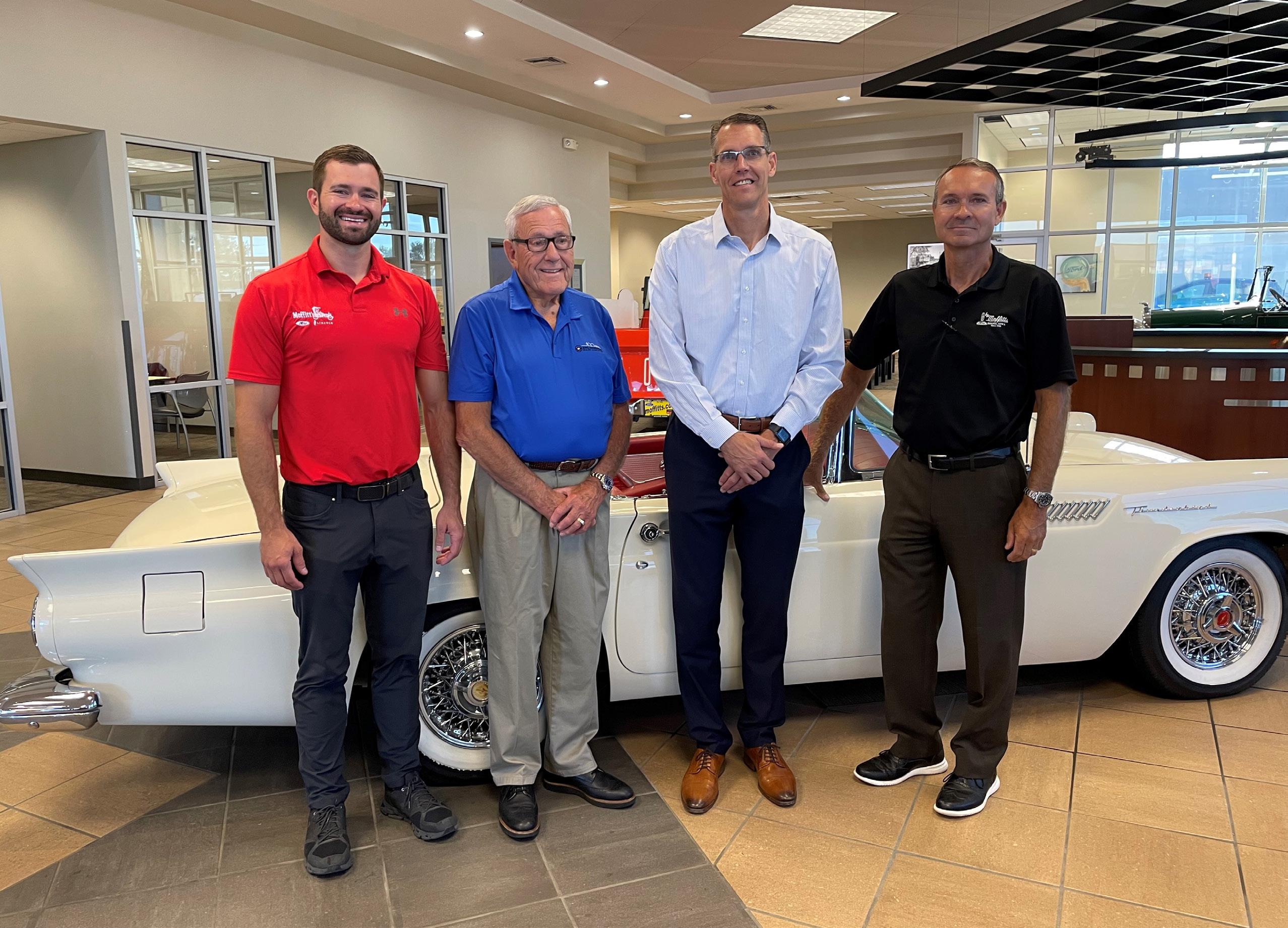
Our tax policies must be fair, consistent, and accountable. Iowa dealers work long hours, sacrifice their weekends, and endure the ups and the downs of the economy. They should be rewarded for their hard work. Fortunately, the House Ways and Means Committee will consider legislation this year to make the historic Tax Cuts and Jobs Act (TCJA) permanent. When it was signed into law, the TCJA nearly doubled the standard deduction for both individual and joint filers, expanded the child tax credit to $2,000 per child, and implemented a 20% business-income deduction to lower taxes on families and small business owners. However, absent congressional action, 23 crucial provisions of this law will expire after 2025. As promised, the new legislation will prevent these provisions from expiring and ensure that Iowans continue to benefit from these welldeserved tax cuts.
Cutting through burdensome red tape: Before I was elected to Congress, I worked in the private sector as head of sales at The Foreign Candy Company in Hull and oversaw the insurance division of nine of Iowa State Bank’s branches. I know firsthand how overregulation can cause headaches and over complicate the most basic tasks for business owners. For this reason, I joined a letter to the chair of the Federal Trade Commission over our serious concerns that the FTC’s proposed vehicle shopping rule would harm consumers and small businesses alike. This rule would overwhelm potential buyers with onerous and duplicative paperwork and needlessly extend the car sales process. Iowa’s fine auto dealers are honest businesses whose relationships with their customers are ironclad. Additional paperwork and red tape only increases vehicle costs and leave both customers and dealers frustrated. Unnecessary red tape hurts Iowa families, workers, and businesses. That’s why I also cosponsored the Regulations from the Executive in Need of Scrutiny (REINS) Act. This legislation reasserts Congress’ rightful authority to halt overreach by the executive branch and DC bureaucracy in the federal rulemaking process. Essentially, it would require every new major rule to be voted on by Congress. This is just another example of needed protections for consumers and small businesses from government overreach that I am proud to support.
As a proud supporter of law enforcement, I have zero tolerance for theft. In recent years, catalytic converter thefts have skyrocketed, costing families and dealers tens of millions of dollars nationwide. Between 2019 and 2021, some reports suggest that converter thefts have more than quadrupled. That is completely unacceptable. Criminals who break our laws must be punished. That’s why I support the Preventing Auto Recycling Theft Act, which would create a national framework to tag catalytic converters and establish federal criminal penalties for these thefts. As a former insurance agent, I understand the financial cost and exhaustion of increased insurance payments at the hands of criminals. I will work to do what I can to crack down on this alarming trend and punish those who jeopardize public safety and increase costs for dealerships.
Streamlining and restoring our supply chain: Due to the COVID-19 pandemic, labor shortages, and bureaucratic red tape, Iowa’s families and small businesses have been negatively impacted by supply-chain bottlenecks both at home and internationally. These disruptions raise prices for everyday goods, leave our store shelves bare, and— particularly for local auto dealers—increase their tax burden as new vehicle inventory plummets through no fault of their own. That’s why I support the Supply Chain Disruptions Relief Act, which would give dealers who use LIFO accounting more time to replenish their inventories as pandemic restrictions are lifted, automobile manufacturing accelerates, and vehicle parts become more accessible. Iowa’s auto dealers need flexibility to respond to unforeseen crises and this legislation ensures that they do not face crippling tax liabilities with no rapid way to rebuild their vehicle inventories. I have also cosponsored the Ceasing Age-Based Trucking Restrictions Act to ensure that qualified, safe drivers can more efficiently transport goods and parts nationwide. In Congress, I will continue to advocate for commonsense policies that make running a small business affordable and rewarding and keep our supply chains humming.
Representative Randy Feenstra represents Iowa’s fourth congressional district, a seat he has held since 2021. Before his election to the House of Representatives, he served as an Iowa state senator from 2009 to 2021.
I am here to represent you. My office is always open. I encourage voters in the first district to call or email in with their thoughts, as these are the opinions that help to guide my decisions in Congress. 1
2
Protecting businesses in Iowa will remain one of my top priorities. Our local economies in Iowa are flourishing, and that’s in large part because of the success of small businesses, including auto dealerships. These businesses foster a community and remind folks the importance of shopping local and supporting their neighbors—all things that help make Iowa the best place to live, work, and to raise a family.
3
I will always fight against burdensome regulations—including a ban on combustion engines. Imposing a ban on combustion engines with no plan in place would not only have a detrimental impact on the auto sale industry but would overwhelm our power grid—all while forcing Americans to buy cars that may not be able to fulfill their needs.
4
Iowa has a booming biofuels industry, and I will continue to support efforts to protect it. I’m proud to work with my colleagues on the Next Generation Fuels Act, which would allow the sale of fuels with greater octane levels and increase the amount of ethanol that can be utilized in the fuel supply. The partnerships among our farmers and biofuel producers in Iowa are strong and help to keep our economy thriving.
5
Inflation rates are soaring, and I’m fighting back against unnecessary government spending that is contributing to inflation and high interest rates. The past two years we passed spending bill after spending bill that included funding for all sorts of wasteful projects, which contributes to our growing debt and rising prices. When Iowans are forced to choose between buying groceries, putting gas in their cars, or heating their homes, other purchases fall even lower on their list of priorities, which hurts businesses across our state. I will continue fighting to represent you and to support commonsense policies to help our state.
Representative Mariannette Miller-Meeks represents Iowa’s first congressional district. Before her election to Congress in 2021, Miller-Meeks served in the Iowa state senate and as Director of the Iowa Department of Public Health.
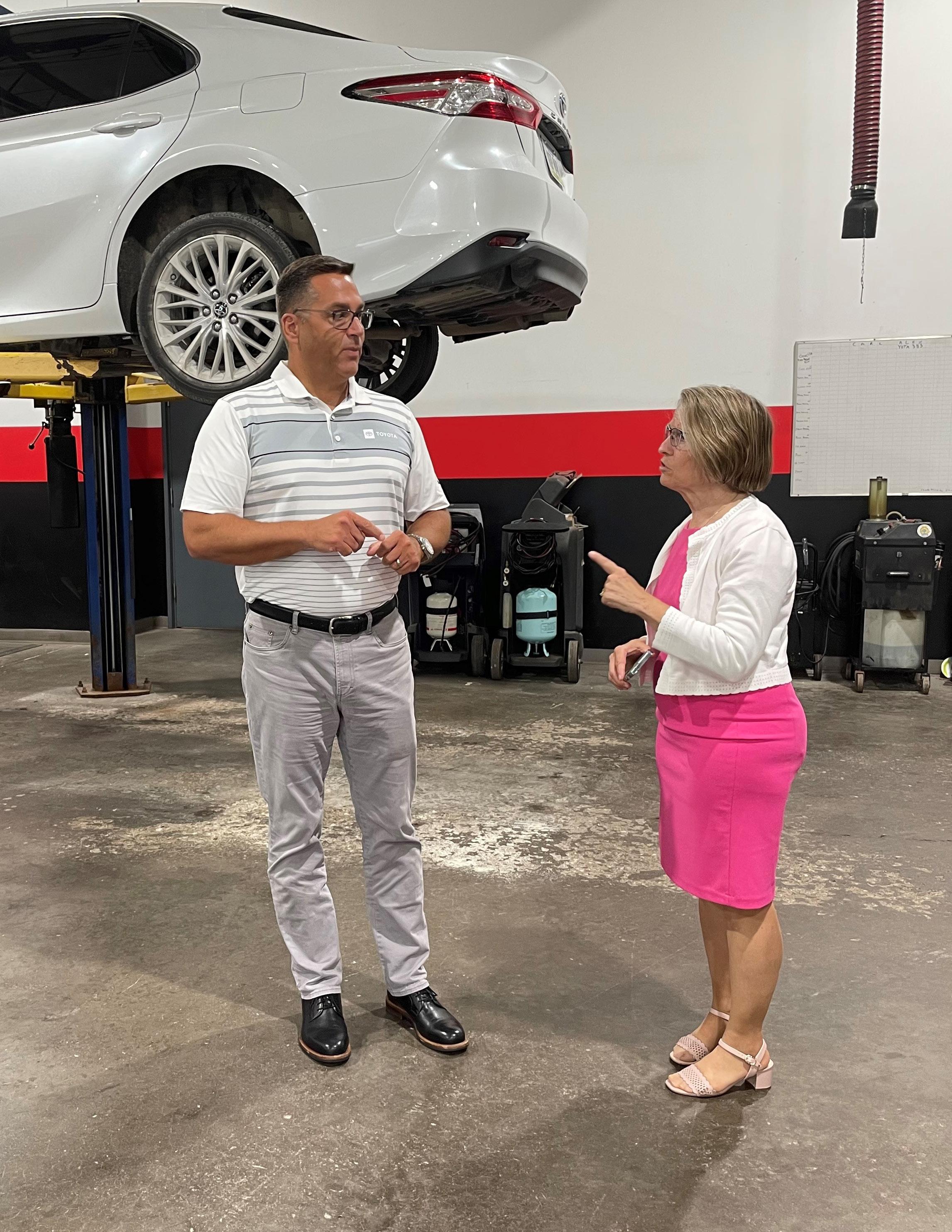
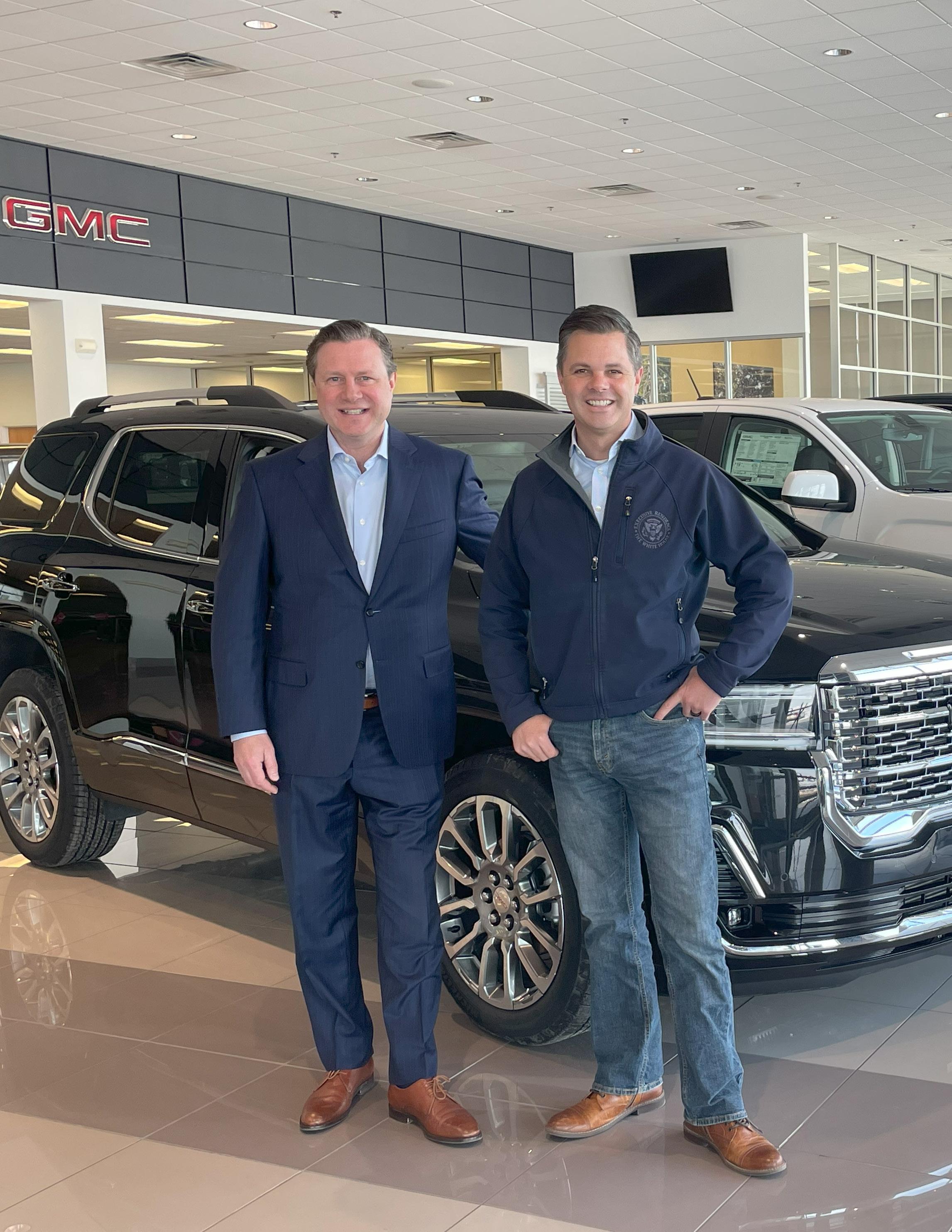
Small businesses are the backbone of our economy. Here in Iowa, small businesses make up 99% of all businesses and export $2.5 billion worth of goods. In 2022, Iowa set a record with 33,331 new small businesses. We need to continue supporting small businesses and providing a healthy environment for economic success.
2
Cutting bureaucratic red tape is key to a stronger economy. DC bureaucrats have added needless regulations that have caused the price of goods and labor to skyrocket. For example, the current administration has added 4,429 rules in just one year, the highest since the ’90s. I will never stop fighting DC-centric regulations that cause costly barriers for Iowans. We must get back to policies that promote a growing and thriving economy.
3
Iowa has a big voice. As a member of the House Financial Services Committee, I’m committed to serving strong industries in our state. Iowa is home to more than 7,000 finance and insurance companies, which do service with even more of our businesses like Iowa auto dealers. Holding a position on this committee allows me to elevate industries like auto dealers that are driving economic development.
4
Working for you. As a civil servant with service in the Air Force, Iowa statehouse, and now Congress, I’m humbled to be a voice for every Iowan in all 21 counties of the Iowa Third District. So far, I’ve worked to make DC operate more like Iowa —creating a balanced budget, working to lower inflation, and stopping government overreach so our auto industry and all families can prosper.
Please don’t hesitate to reach out. The best way for me to represent our community is to hear directly from you on what issues are important. You can visit nunn.house.gov to get in touch. It is a great honor to represent you! 5
Representative Zach Nunn is a first-term legislator representing Iowa’s third congressional district. Prior to his election to Congress, Nunn served in the Iowa House of Representatives from 2015 to 2019 and the Iowa Senate from 2019 to 2023.
The scholarship couldn’t have come at a better time.
When Don Bryan received the Michael T. Clemons scholarship from the Iowa Automotive Dealers Foundation for Education in 2012, the single father of two was enrolled in the Ford ASSET program at Des Moines Area Community College (DMACC) and struggling to buy food. He would have persevered without the scholarship, but the lack of financial support “would have altered the course of my development and my completion may have been delayed.”
After graduating from DMACC, Bryan worked at Jensen Ford in Marshalltown, working his way up to senior master technician.
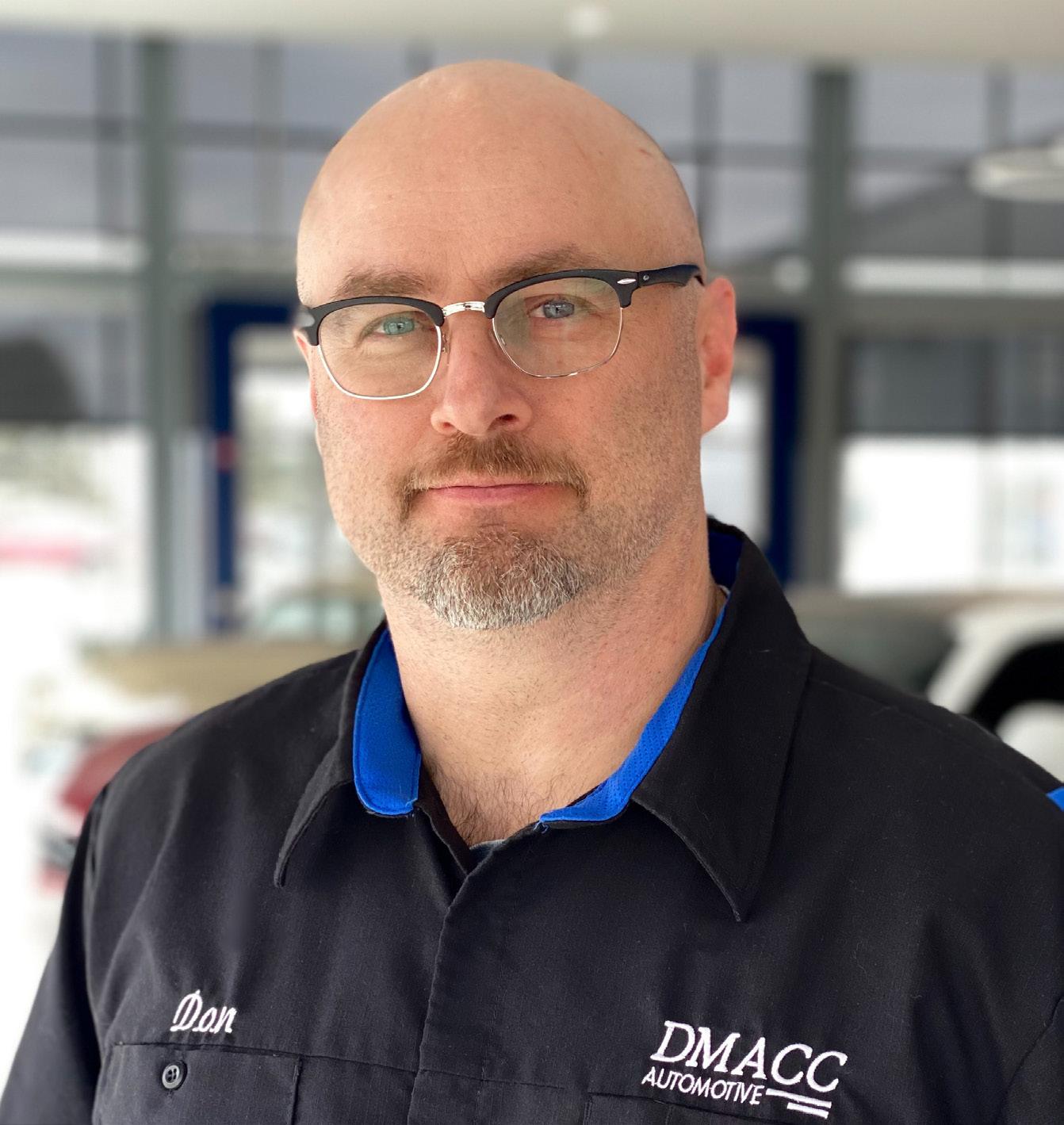
Currently, Bryan is an automotive technology instructor at DMACC. “I enjoy the ability I have to influence my students in becoming better technicians and better people,” he said. Part of helping his students improve is teaching them the importance of time management and motivation, which Bryan says are the skills that his students have the greatest opportunity to develop.
This mentality of striving to improve extends beyond the lessons Bryan hopes to convey to his students. “I don’t think you’re ever your best self,” Bryan said. “You should never stop developing or trying to be better as a person or a technician.”
Perhaps that’s why he believes that the most important skill to stay
relevant in the industry is the desire to learn as much as possible. “Things are always changing and developing, and if you don’t do the same you will no longer be able to work on the vehicles that are new to the road,” Bryan said. Bryan spoke highly of the impact that dealerships have on automotive programs. “[Dealerships] are integral to what we teach, where we place students in internships, and most importantly, student perception of brands and prospective employers,” Bryan said. “Without the support of the many wonderful dealerships that
we are collaborating with, we wouldn’t have the capabilities we have, which in turn prepares the techs of the future that they will rely on.”
Although it’s been more than 10 years since he received the scholarship, Bryan remains grateful. “When I think of the students whose lives I have impacted in my time as an instructor, I can’t help but think that is all possible because of the amazing impact the IADA has had on my life, [through] their commitment to the industry and the individuals that work in it.”
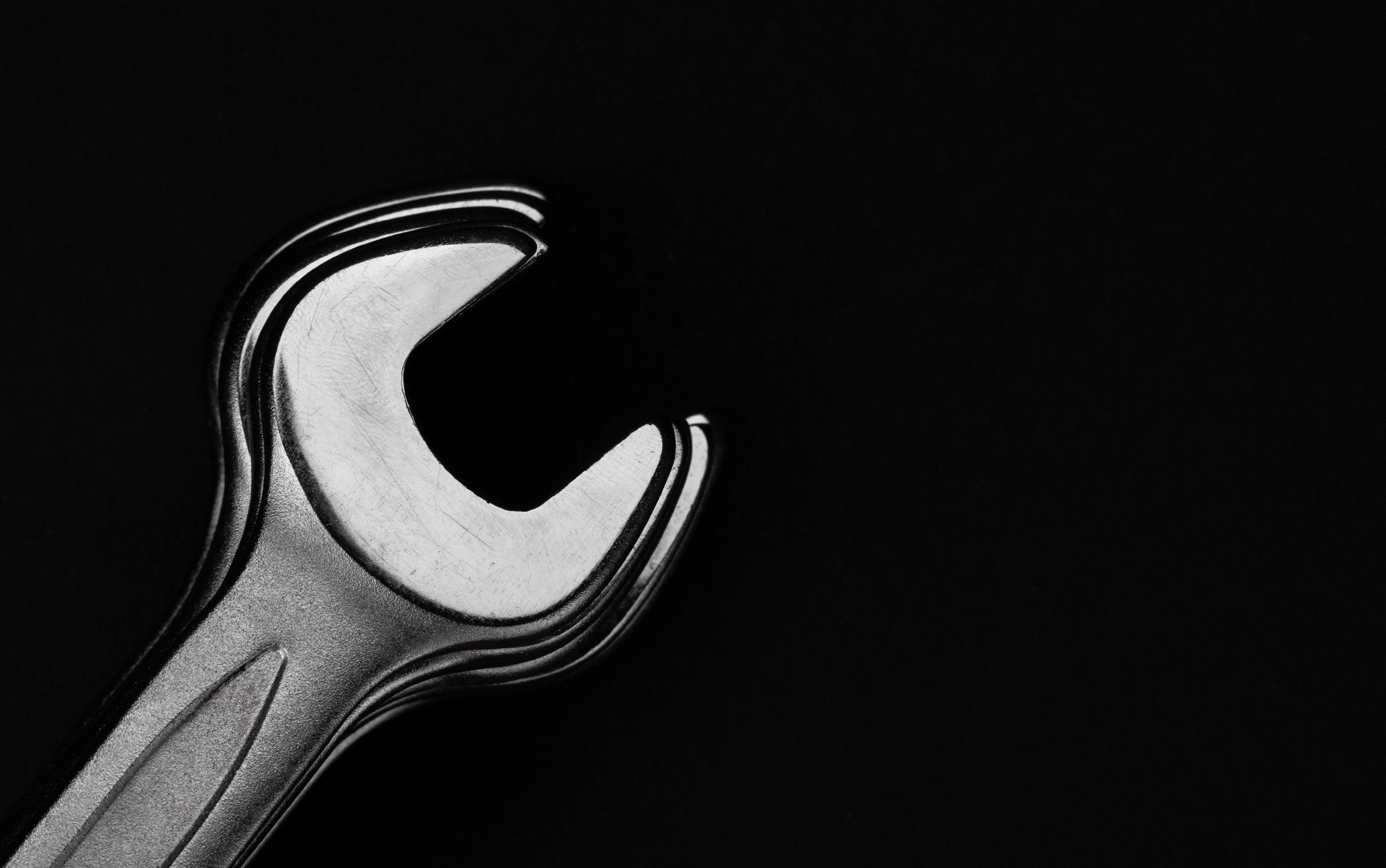
Our firm has completed over 100 dealership buy/sell transactions throughout the Midwest and beyond. When you consider the importance of these transactions, you want us on your side of the table. See how you can put our experience to work at Arenson Law Group, PC.

